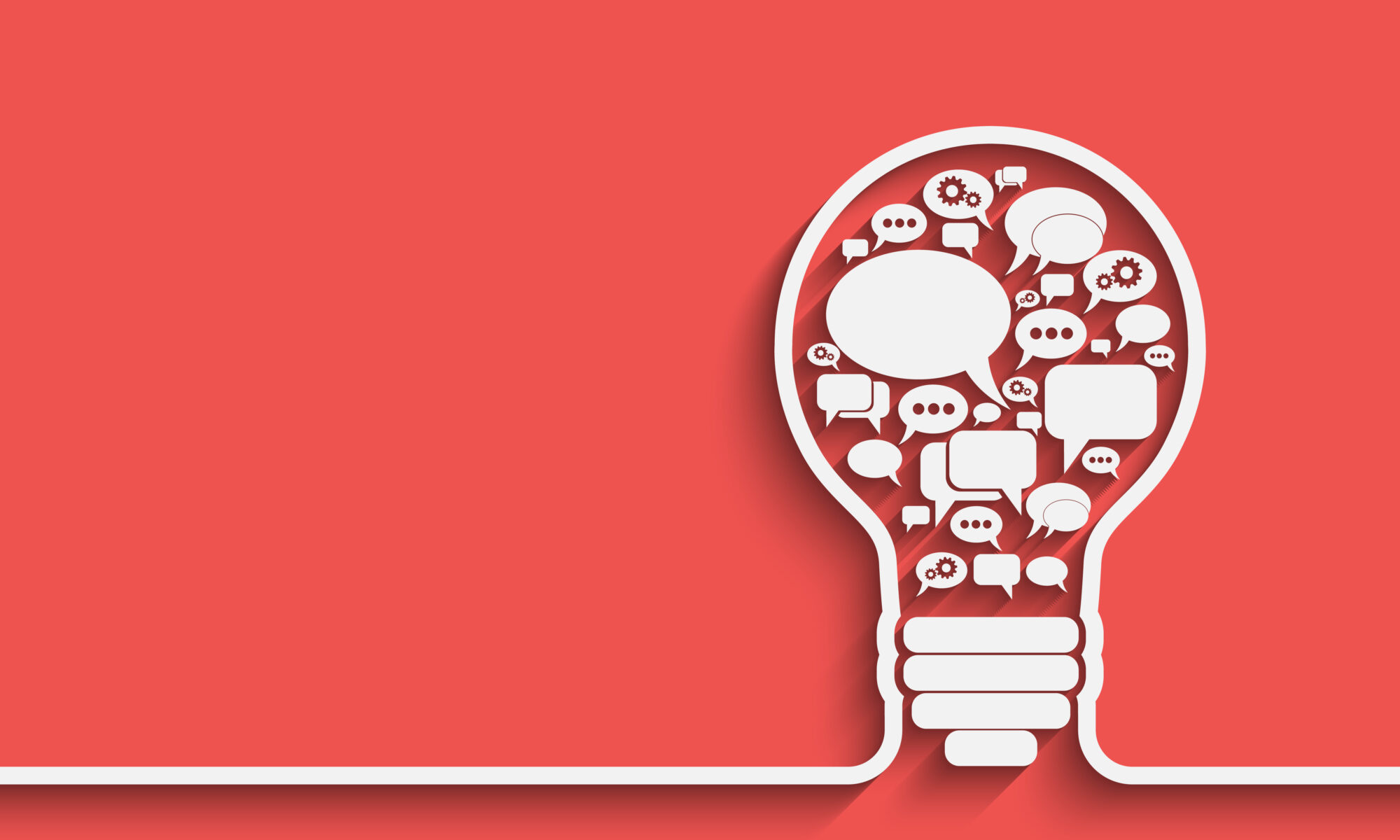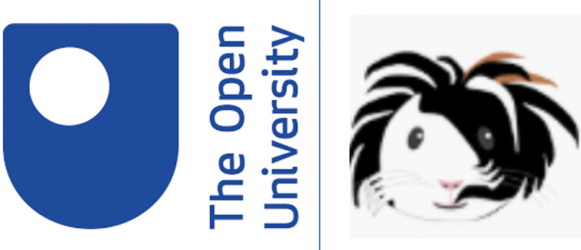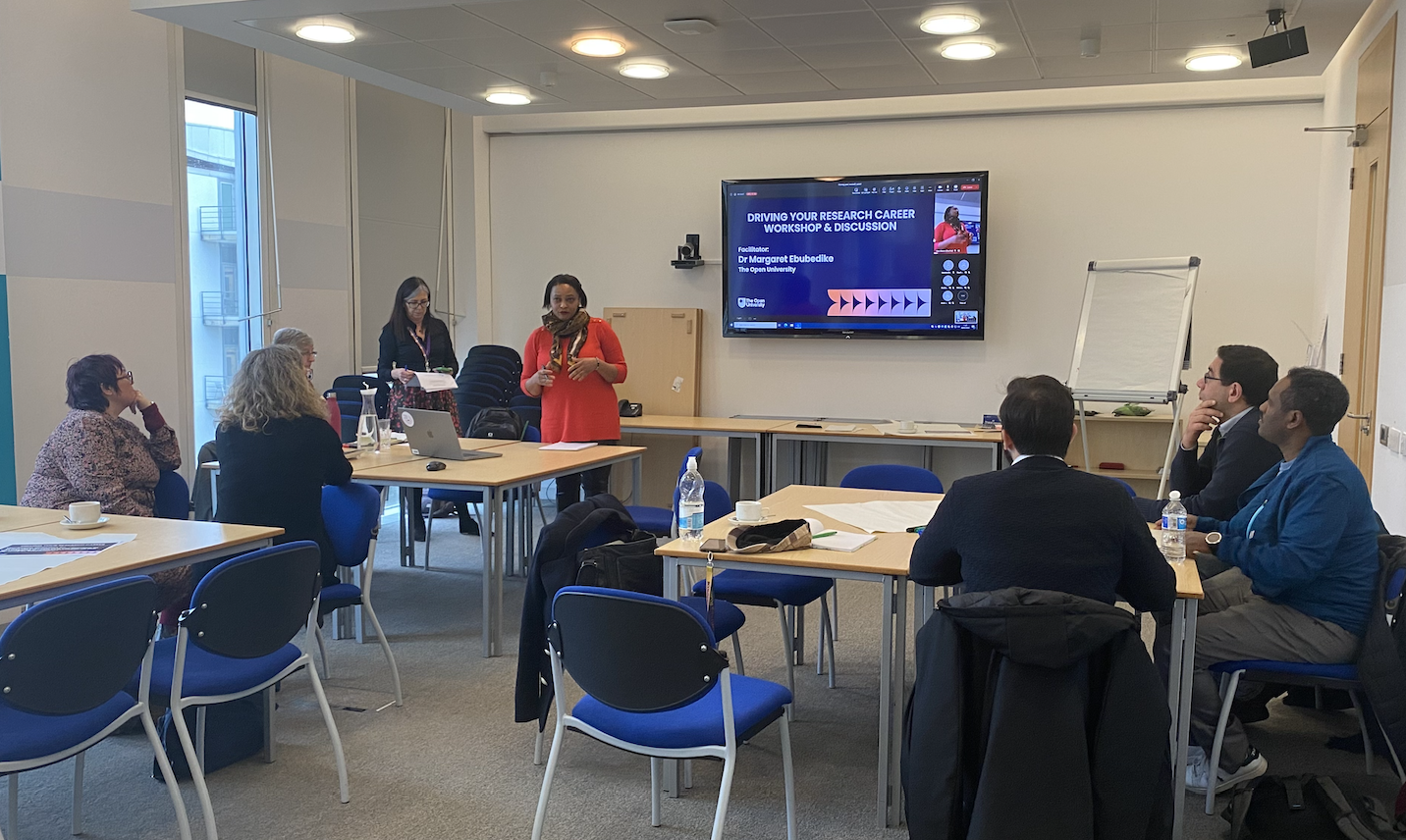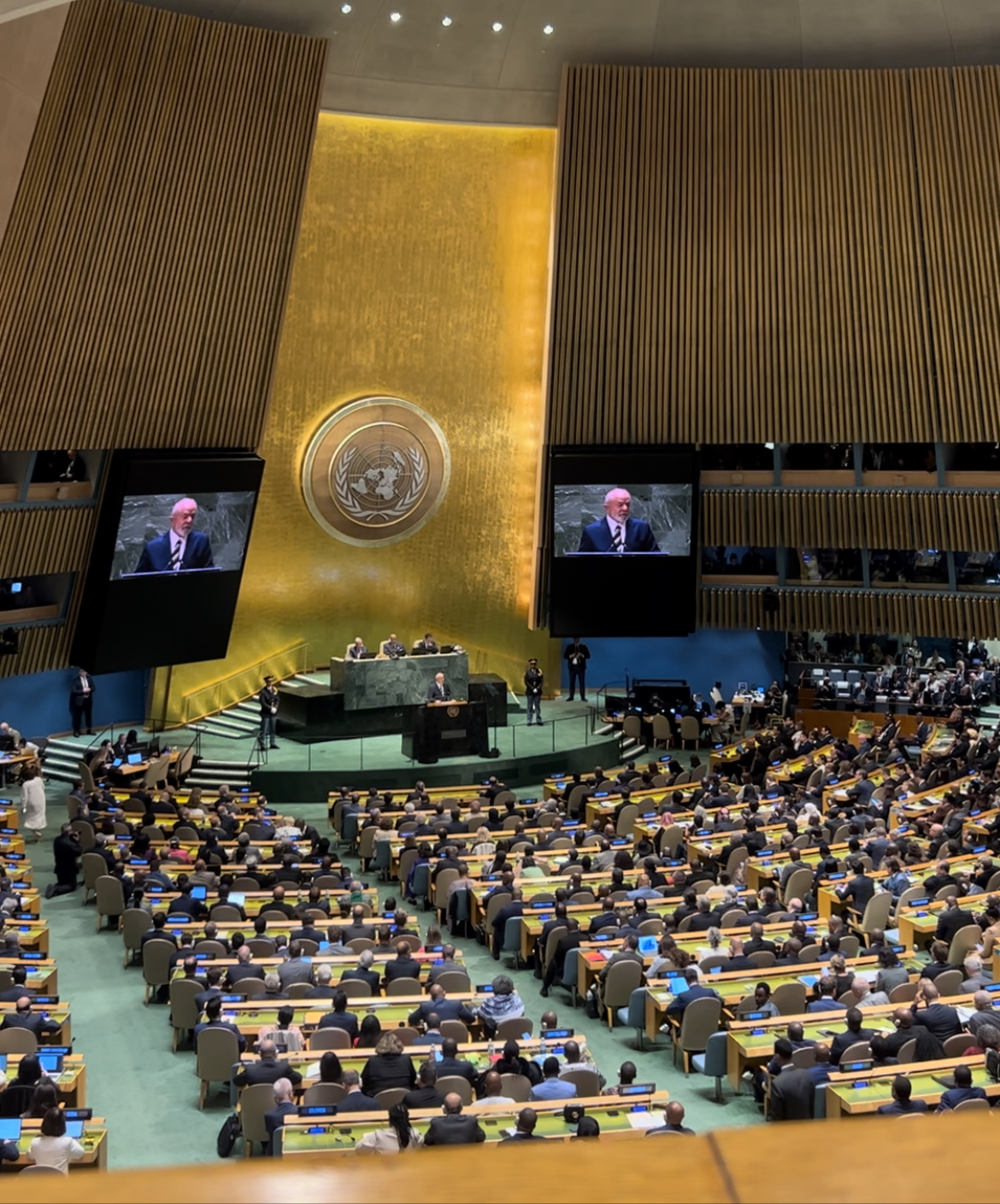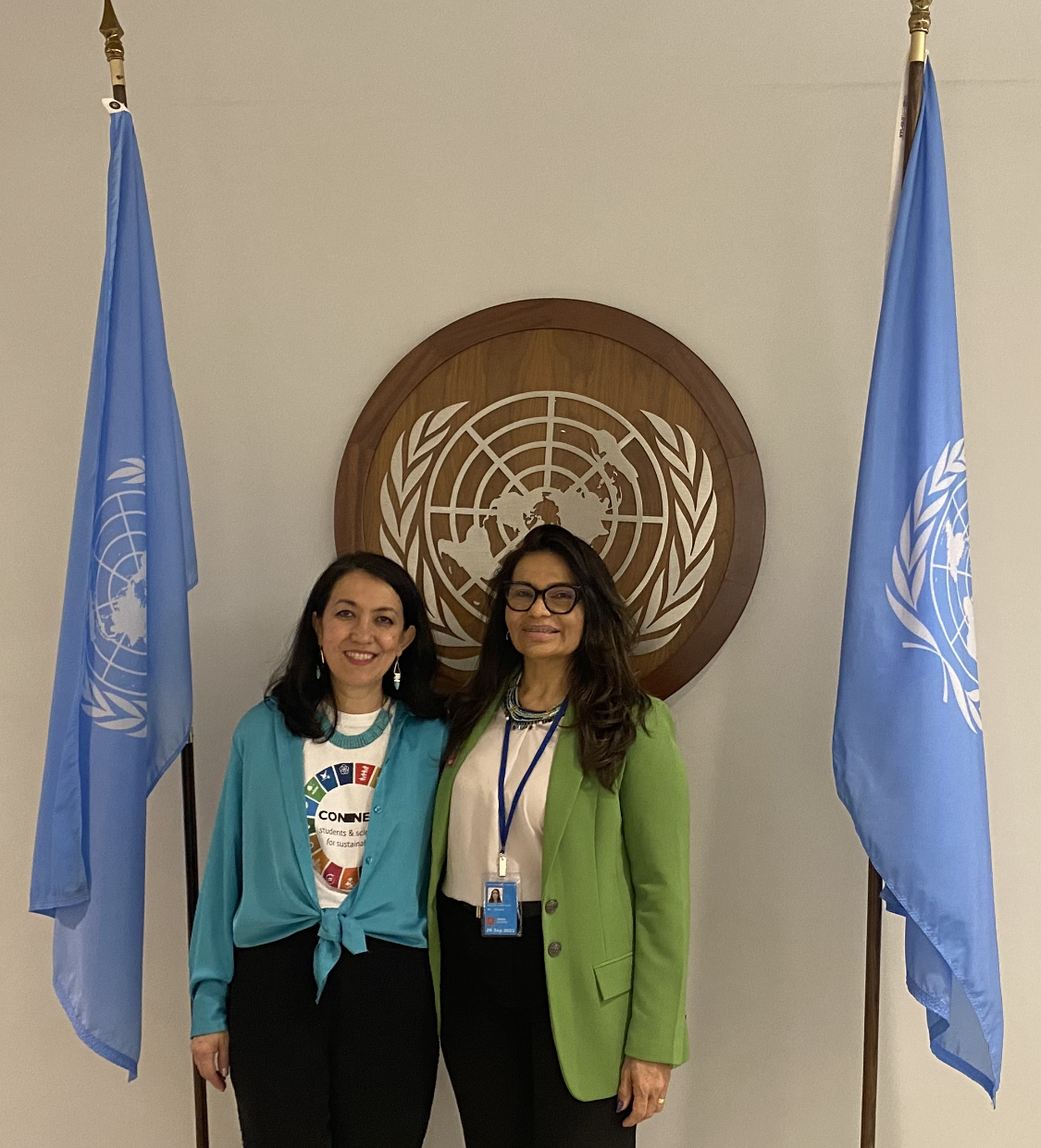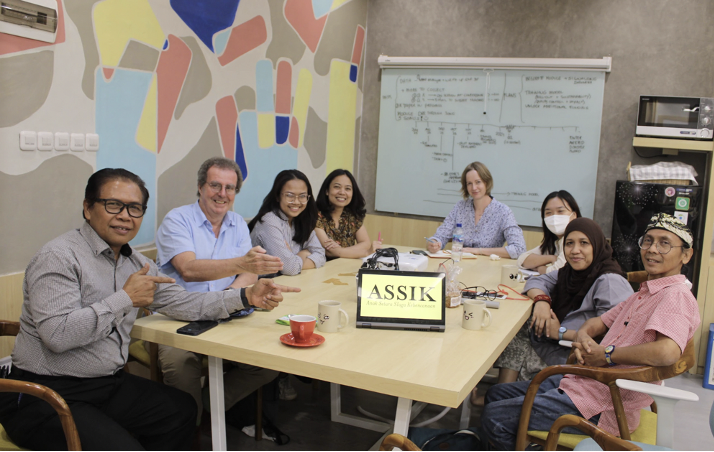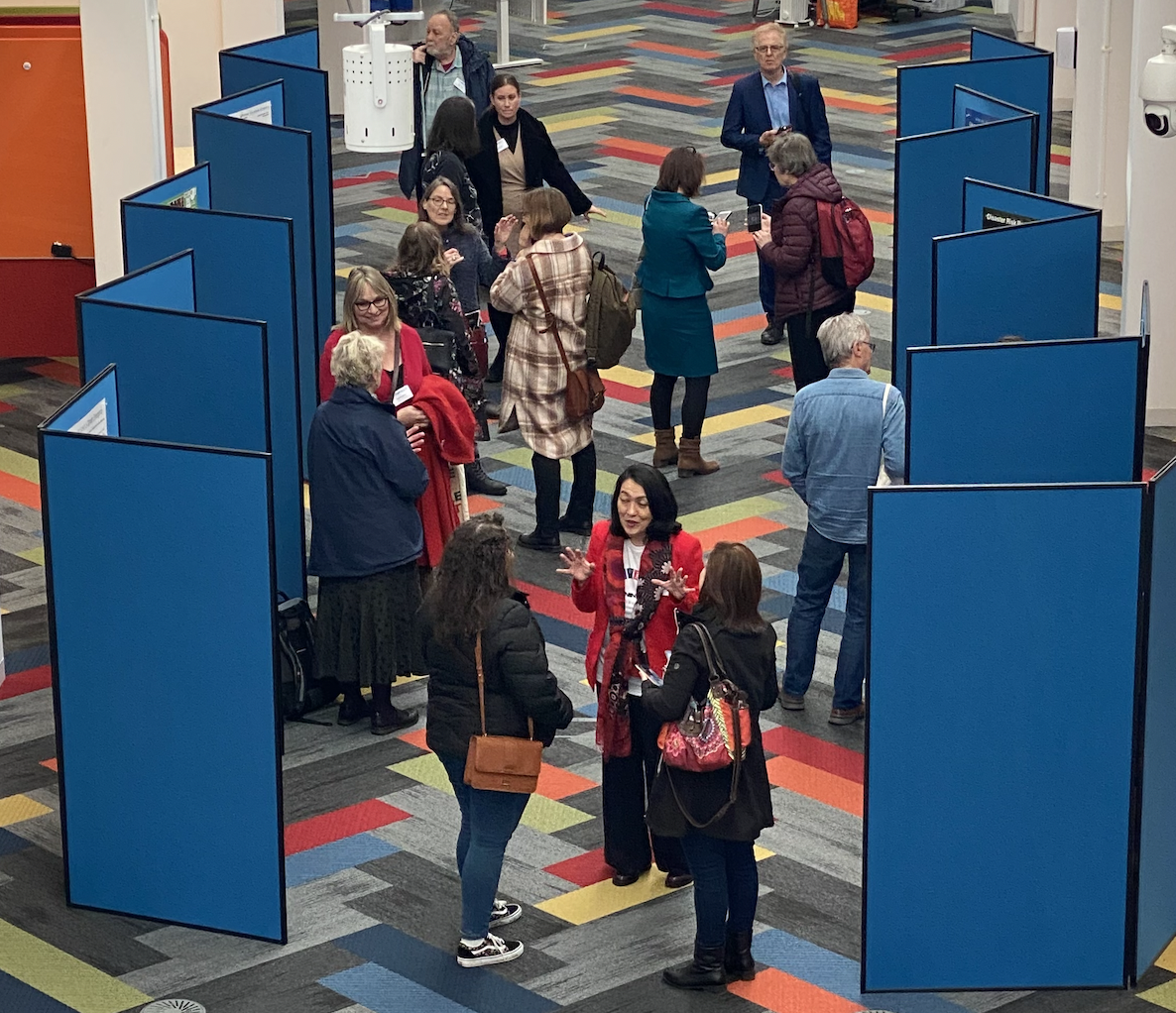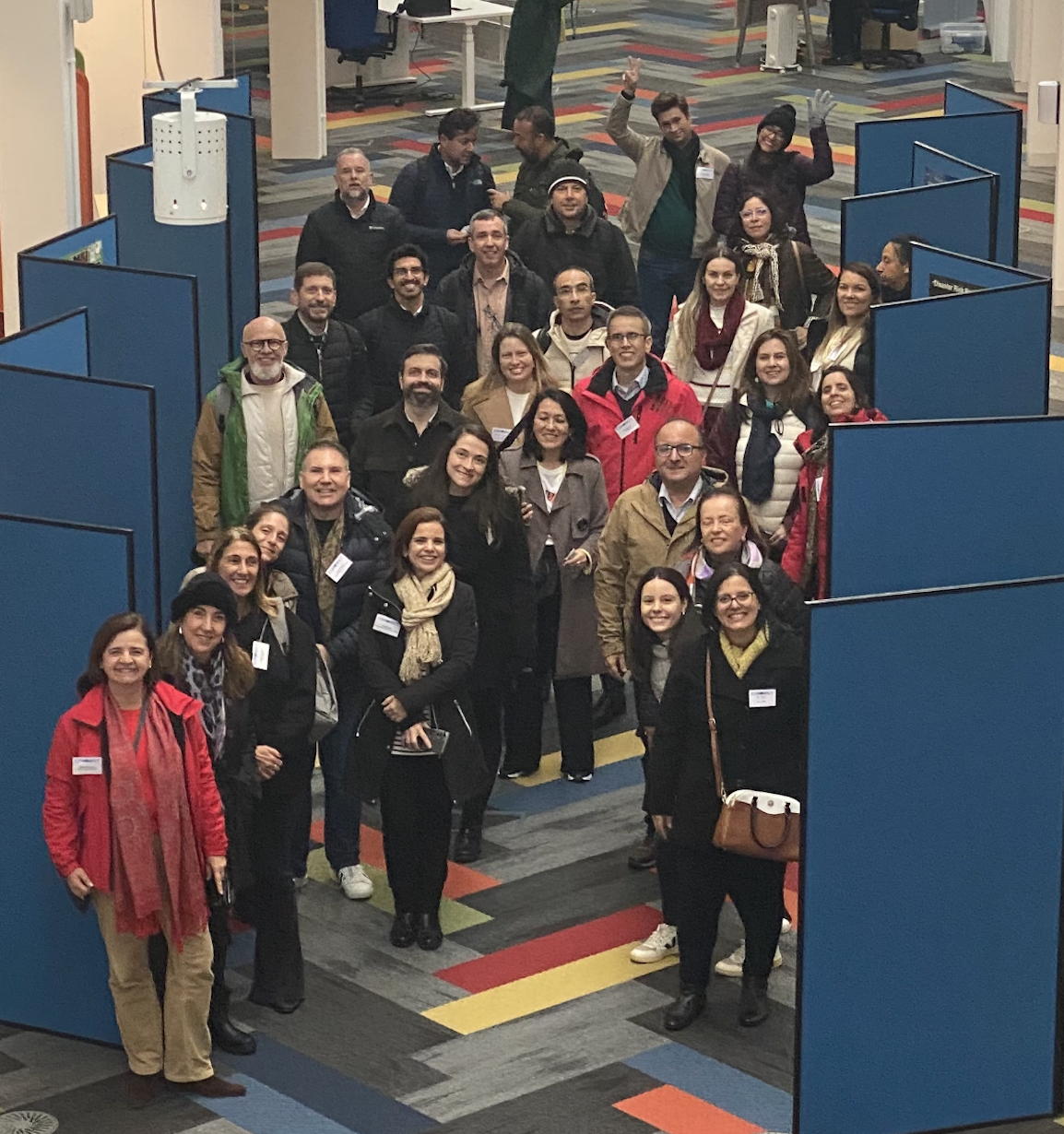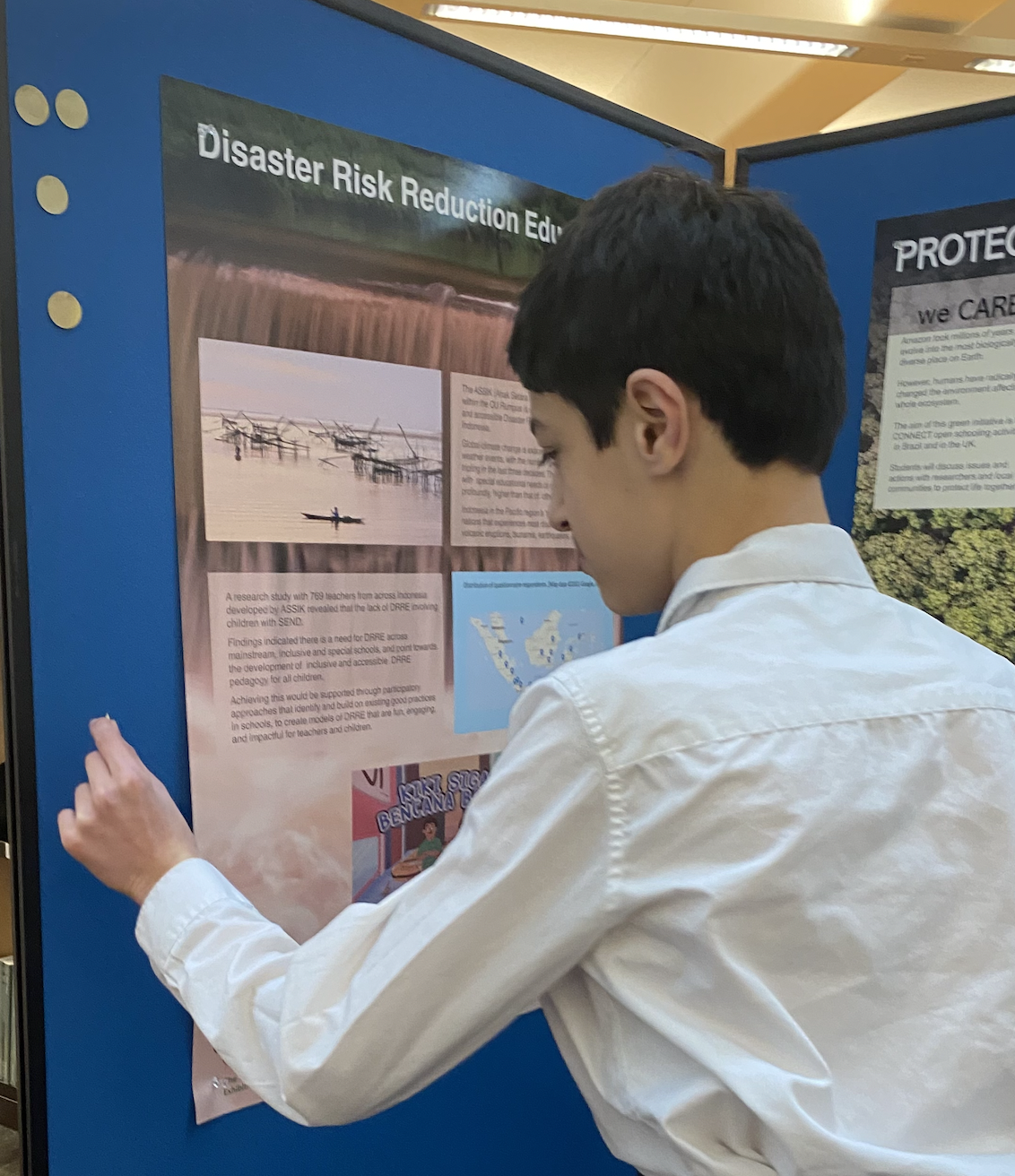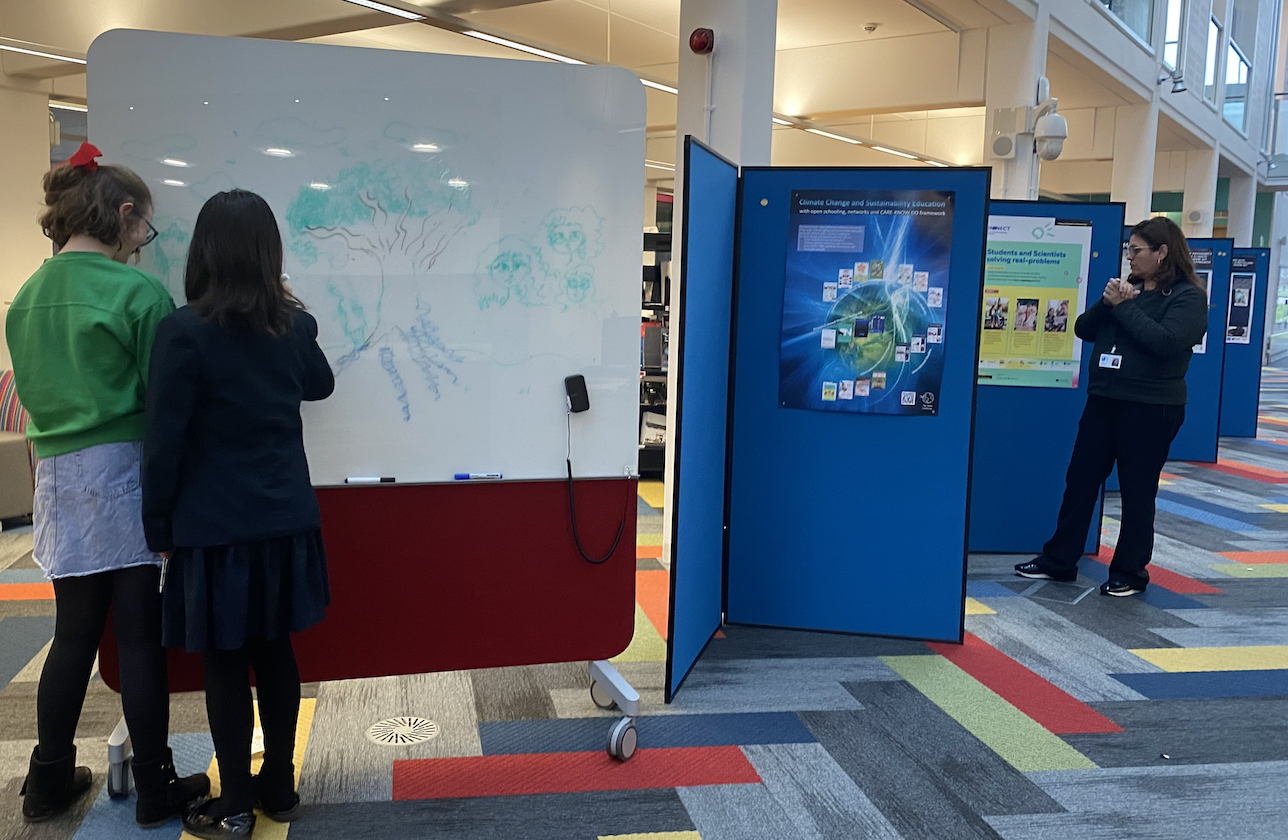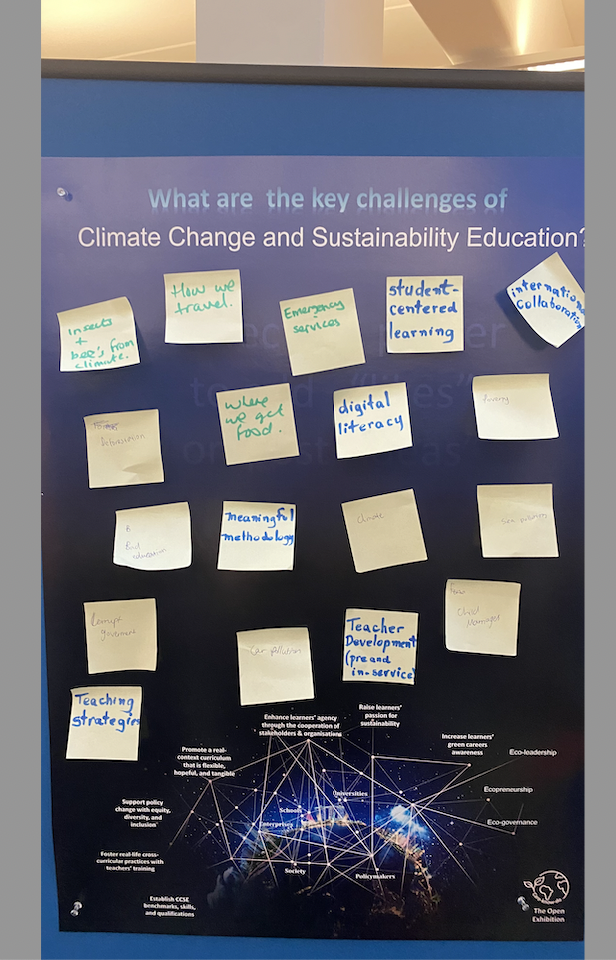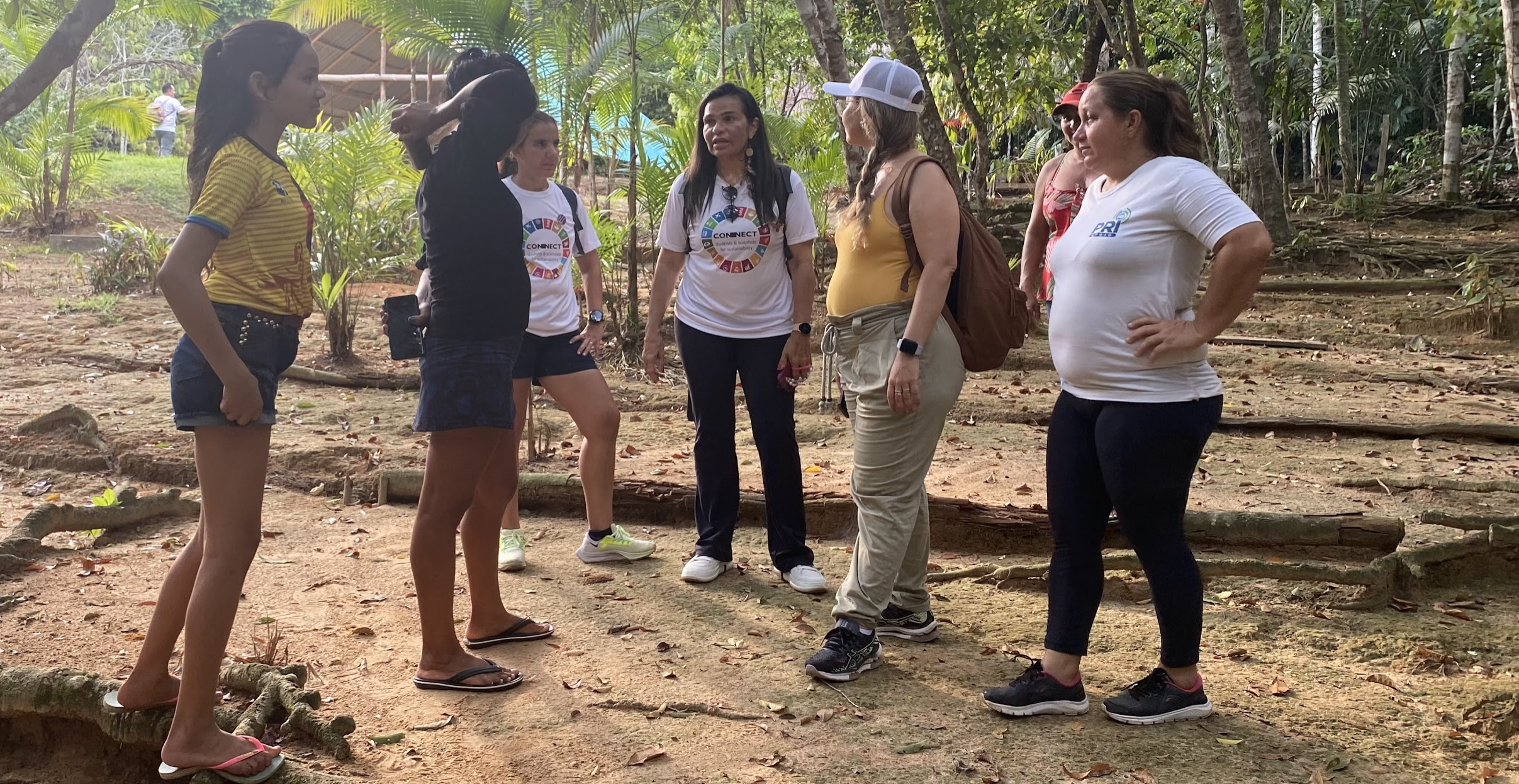Open Schooling 2030 for emancipatory education
with fun participatory science, arts, and emerging technologies
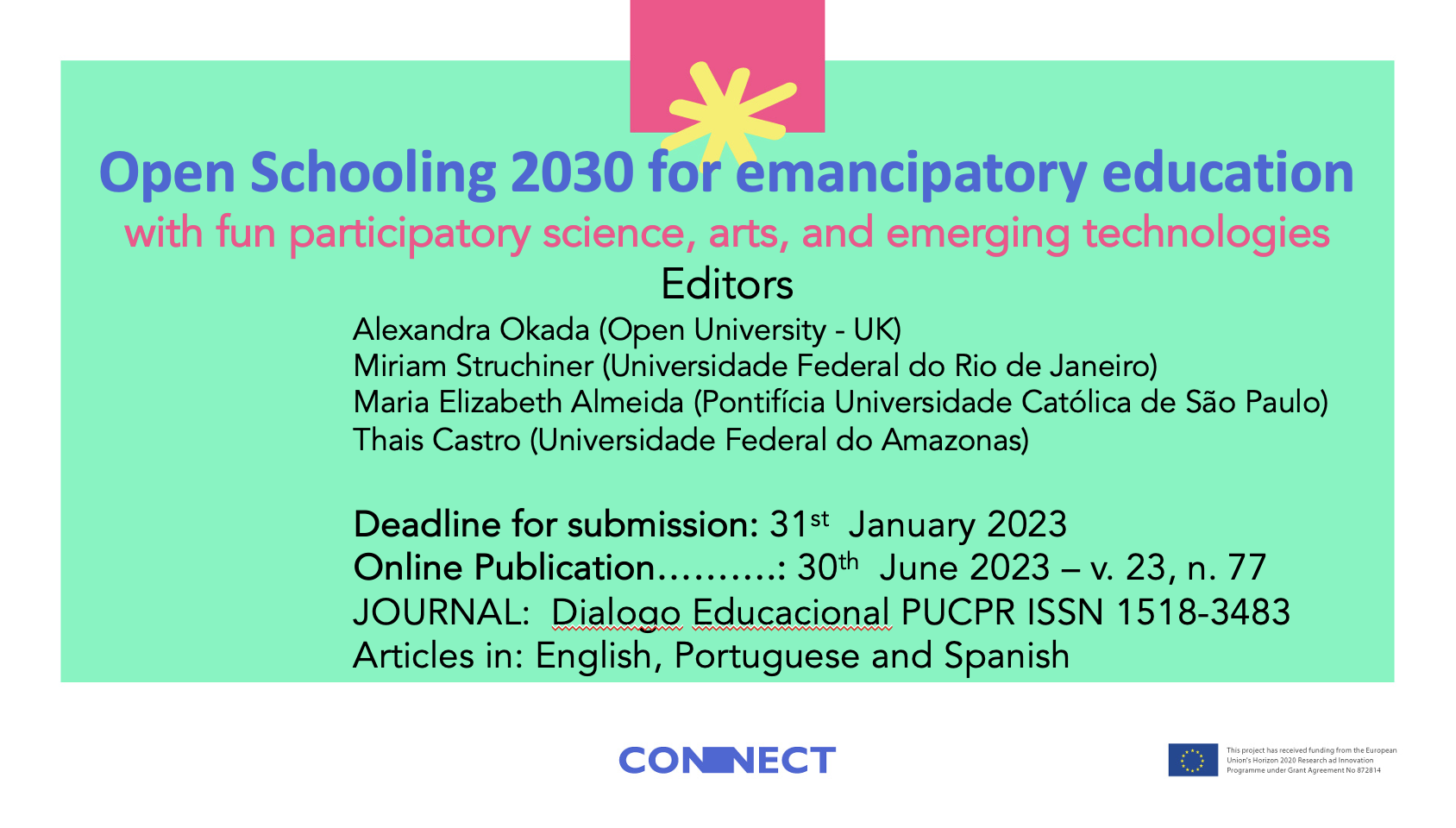
The Agenda 2030, also known as the 17 Sustainable Development Goals, is a program established by the United Nations, with the commitment to seek solutions to global challenges and promote peace and prosperity in today’s adverse world. For this, education plays a central role in empowering this and the next generations for the collaborative construction of a better and sustainable future for all (UNESCO, 2021). Consistently, open schooling is an approach promoted by the European Union that aims to establish partnerships between schools, universities, companies, research centers and civil society towards more scientifically literate communities for sustainability (EC, 2018; HAZELKORN et al., 2015).
Education open to partnerships is key to enable students to discuss problems and solutions within and outside schools, including research and innovation related to real life by interacting with expert professionals, citizens of their communities and families. In open schooling underpinned by the CARE-KNOW-DO principles (Okada, 2020), students are engaged to identify and discuss real-life problems that they CARE about, need to KNOW about and DO something about. This approach aims to transform education so that young people are involved in acquiring knowledge for decision-making in authentic contexts and developing scientific skills for problem-solving in an innovative, enjoyable and responsible way supported by – natural, social and formal – sciences and technologies.
Open schooling aims to prepare young people to develop competences to respond to relevant real-life scenarios supported by curriculum knowledge and fun participatory approaches for enhancing science with and for society. In this context, emancipatory education for independent thinking with fun (Okada & Sheehy, 2020) enables less favored students and also less represented learners of society to develop a critical awareness of their contexts and the world to transform it with the joy of search and discovery (Freire, 1967; 1984). Learning in an emancipatory and fun way allows students to be protagonists of their own story with intrinsic motivation and genuine pleasure through cooperation with others. Learning supported by the pedagogy of autonomy with fun allows apprentices to become transforming agents with enthusiasm, initiative and driving energy to innovate their reality and shape a better world (Freire, 1996; 2009).
This special edition explores a range of innovative practices, challenges and recommendations for education supported by open schooling with Responsible Research and Innovation (Okada & Sherborne, 2018; Almeida & Okada, 2019). Our goal is to bring together innovative studies on authentic learning – that is – with real-life issues that include apprentices, educators, professionals and policy makers and civil society managers in the various areas supported by emerging sciences, arts and technologies. The objective of this special edition is to address transformative initiatives in education through open schooling based on theoretical and empirical studies in various settings supported by formal, informal and non-formal learning scenarios. This special edition is open for articles with diverse real-life socio-scientific issues related to the AGENDA 2030 (UNESCO, 2015), the European missions (EC, 2021), and the global challenges (EC, 2018) which include, for example, food, health, environment, climate change, energy and science-society.
We look forward to receiving papers that present distinctive participatory methods involving the partnership between school, university and society with different settings, for example, online, offline, hybrid and onlife(Floridi, 2015) practices. They may also include community-based participatory research, collaborative project-based learning, collective inquiry mapping, citizen science, environmental citizenship among others. We invite studies about open schooling through a variety of emerging technologies that create opportunities for learners to explore APPs, robotics, coding, FabLab, MakerCulture, Artificial Intelligence, Inquiry narratives, phenomena-based learning, self-assessment and co-evaluation instruments, educational policies, contextualised and significant curricula, methodologies for teacher education, interdisciplinary, transdisciplinary and emancipatory scenarios, among others.
Articles can be published in English, Portuguese, French and Spanish. We invite research groups, academics and practitioners interested in sharing research studies including quantitative and qualitative research methods, case studies, and well-founded conceptual work.
About the Journal
The Open Access Journal “Diálogo Educacional” (top score in Brazil A1) is a four-monthly publication, peer-reviewed in a double blind review system with national and international printed and online circulation.
Submit your manuscript online until January 31st to be published on the platform in June 2023.
For author submission guidelines and further details, please see the submission page:
https://periodicos.pucpr.br/dialogoeducacional/about/submissions
References
Floridi, L. (2015). The onlife manifesto: Being human in a hyperconnected era (p. 264). Springer nature.
Freire, P. Role of education in humanization. Series Articles, 1967.
Freire, P. Cultural action for freedom. 7. ed. Rio de Janeiro: Peace and Earth, 1984.
Freire, P. Pedagogy of autonomy: knowledge necessary for educational practice. 9. ed. São Paulo: Peace and Earth, 1996.
Freire, P. Pedagogy of hope: a reunion with the pedagogy of the oppressed. 16. ed. Rio de Janeiro: Peace and Earth, 2009.
Hazelkorn, et al.. 2015 (org.). Science Education for Responsible Citizenship. Luxembourg: Publications Office for the European Union.
EC (2018). Open schooling and collaboration on science education. [https://ec.europa.eu/info/funding-tenders/opportunities/portal/screen/opportunities/topic-search;callCode=H2020-SwafS-2018-2020]. European Commission
Okada, Alexandra and Matta, Claudia Eliane (2021). Teacher training for professional education through a course of extension on emerging Technologies with open schooling. Revista Diálogo Educacional, 21(71) pp. 1794–1819.
Okada, Alexandra; Souza, Karine Pinheiro de; Struchiner, Miriam; Rabello, Cíntia and Rosa, Luziana Quadros da (2023). Open schooling to empower Brazilian teachers: Emancipatory fun in education for a sustainable innovation ecosystem. In: Holliman, Andrew J. and Sheehy, Kieron eds. Overcoming Adversity in Education. London: Routledge, pp. 234–248.
Okada, Alexandra and Sheehy, Kieron (2020). The value of fun in online learning: a study supported by responsible research and innovation and open data. Revista e-Curriculum, 18(2) pp. 319–343.
Okada, Alexandra and Sherborne, Tony (2018). Equipping the Next Generation for Responsible Research and Innovation with Open Educational Resources, Open Courses, Open Communities and Open Schooling: An Impact Case Study in Brazil. Journal of Interactive Media In Education, 1(18) pp. 1–15.
UNESCO (2021). UNESCO and Sustainable Development Goals https://en.unesco.org/sustainabledevelopmentgoals
 Building on the HLSC’s Stocktake that took place on 17 June 2024 and informed by the United Nations Pact for the Future, the 2024 GEM will mark a key moment for education, bringing the entire international education community together, including governmental and non-state actors, to agree on acceleration strategies for the remainder of the 2030 Agenda.
Building on the HLSC’s Stocktake that took place on 17 June 2024 and informed by the United Nations Pact for the Future, the 2024 GEM will mark a key moment for education, bringing the entire international education community together, including governmental and non-state actors, to agree on acceleration strategies for the remainder of the 2030 Agenda.